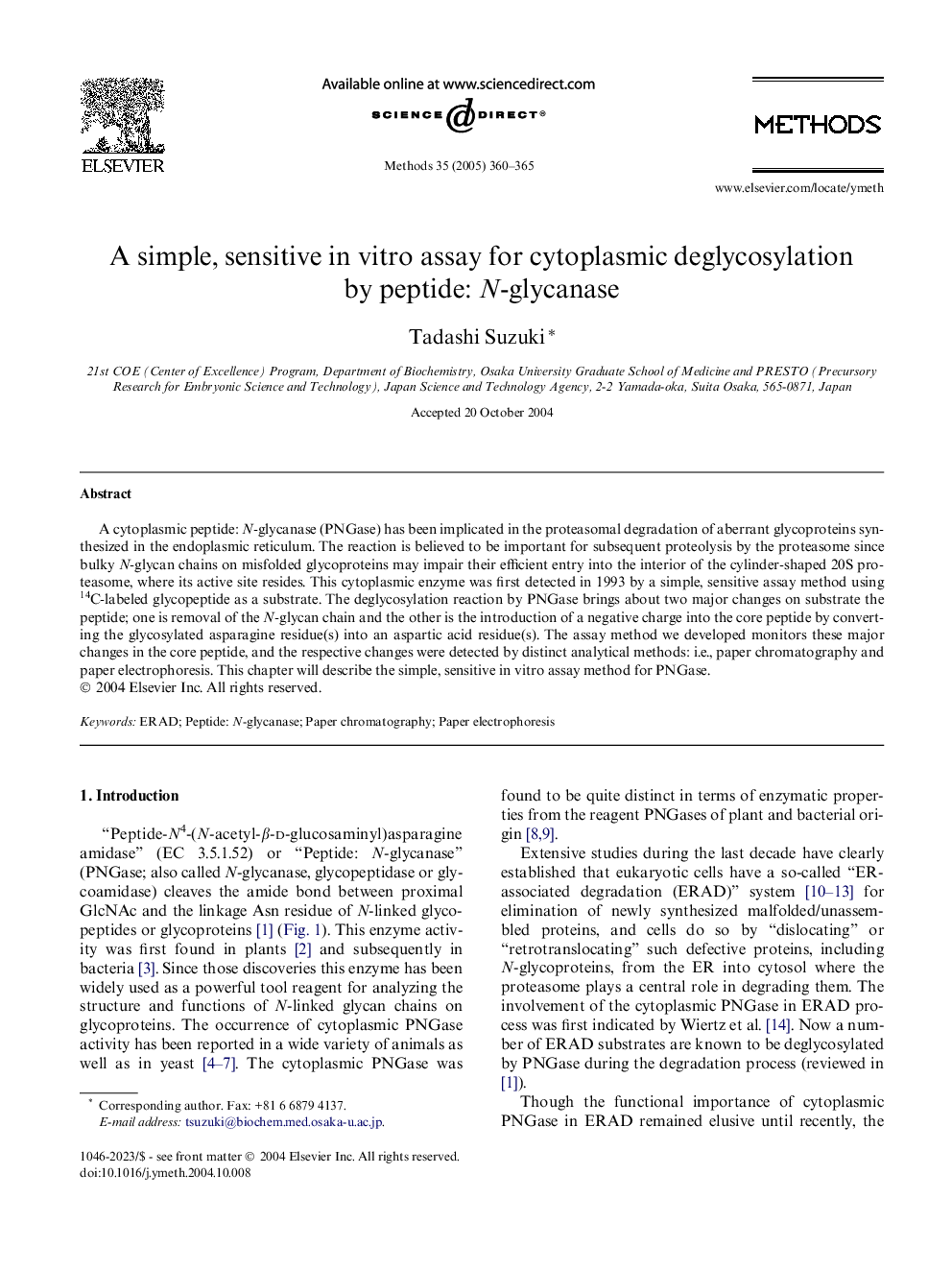| Article ID | Journal | Published Year | Pages | File Type |
|---|---|---|---|---|
| 10826242 | Methods | 2005 | 6 Pages |
Abstract
A cytoplasmic peptide: N-glycanase (PNGase) has been implicated in the proteasomal degradation of aberrant glycoproteins synthesized in the endoplasmic reticulum. The reaction is believed to be important for subsequent proteolysis by the proteasome since bulky N-glycan chains on misfolded glycoproteins may impair their efficient entry into the interior of the cylinder-shaped 20S proteasome, where its active site resides. This cytoplasmic enzyme was first detected in 1993 by a simple, sensitive assay method using 14C-labeled glycopeptide as a substrate. The deglycosylation reaction by PNGase brings about two major changes on substrate the peptide; one is removal of the N-glycan chain and the other is the introduction of a negative charge into the core peptide by converting the glycosylated asparagine residue(s) into an aspartic acid residue(s). The assay method we developed monitors these major changes in the core peptide, and the respective changes were detected by distinct analytical methods: i.e., paper chromatography and paper electrophoresis. This chapter will describe the simple, sensitive in vitro assay method for PNGase.
Related Topics
Life Sciences
Biochemistry, Genetics and Molecular Biology
Biochemistry
Authors
Tadashi Suzuki,
